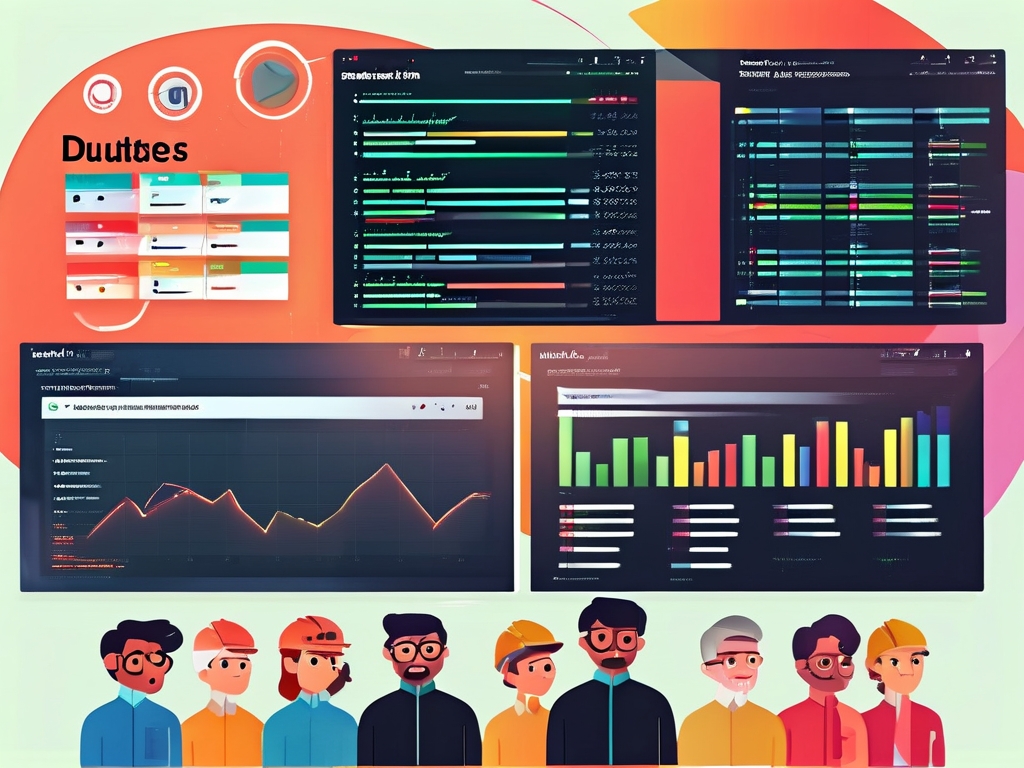The field of data engineering has grown exponentially over the past decade, driven by the increasing reliance on data-driven decision-making across industries. As organizations strive to build robust data infrastructures, the demand for skilled data engineers continues to rise. Understanding the career progression and hierarchy within this domain is critical for professionals aiming to grow in their roles. This article explores the typical levels of data engineering positions, from entry-level to executive tiers, and outlines the responsibilities, skills, and expectations associated with each stage.
1. Junior Data Engineer
Responsibilities:
Junior data engineers are often entry-level professionals who focus on foundational tasks. They assist in building and maintaining data pipelines, perform basic ETL (Extract, Transform, Load) processes, and troubleshoot minor issues in data workflows. Their work is typically supervised by mid-level or senior engineers.

Key Skills:
- Proficiency in SQL and scripting languages like Python or Bash.
- Familiarity with data warehousing concepts (e.g., star schema, snowflake schema).
- Basic understanding of cloud platforms like AWS, Azure, or Google Cloud.
- Experience with version control tools like Git.
Career Progression:
Junior engineers usually spend 1–3 years in this role before advancing. They are expected to master core tools and contribute to small-scale projects independently.
2. Mid-Level Data Engineer
Responsibilities:
Mid-level engineers take ownership of larger components of data infrastructure. They design scalable pipelines, optimize data storage solutions, and collaborate with data scientists or analysts to ensure data accessibility. They may also mentor junior team members.
Key Skills:
- Advanced SQL and programming skills (Python, Scala, or Java).
- Expertise in big data tools like Apache Spark, Hadoop, or Kafka.
- Experience with workflow orchestration tools (e.g., Airflow, Luigi).
- Knowledge of DevOps practices for CI/CD pipelines.
Career Progression:
Mid-level engineers often specialize in areas like real-time data processing or cloud infrastructure. Promotion to senior roles depends on leadership potential and technical depth.
3. Senior Data Engineer
Responsibilities:
Senior data engineers lead complex projects and architectural decisions. They design enterprise-grade data platforms, enforce best practices for data governance, and solve high-impact performance bottlenecks. They also act as bridges between engineering teams and business stakeholders.
Key Skills:
- Mastery of distributed systems and scalable architecture design.
- Deep understanding of data security and compliance (e.g., GDPR, HIPAA).
- Ability to optimize costs in cloud environments.
- Strong communication skills for cross-functional collaboration.
Career Progression:
At this stage, engineers may choose between technical leadership (e.g., Principal Engineer) or managerial paths (e.g., Engineering Manager).
4. Lead/Principal Data Engineer
Responsibilities:
Principal engineers define the technical vision for an organization’s data strategy. They evaluate emerging technologies, set standards for data quality, and mentor junior-to-senior team members. Their work often influences company-wide decisions.
Key Skills:

- Expertise in multi-cloud or hybrid architectures.
- Proven track record in leading large-scale migrations or system overhauls.
- Strategic thinking to align data initiatives with business goals.
Career Progression:
Principal engineers may transition into roles like Chief Data Officer or pursue consultancy opportunities.
5. Data Engineering Manager/Director
Responsibilities:
At the managerial level, professionals oversee teams, budgets, and project timelines. They prioritize initiatives, resolve resource conflicts, and ensure alignment with organizational objectives. Technical expertise remains crucial, but people management becomes a core focus.
Key Skills:
- Experience in agile project management.
- Ability to hire and retain top talent.
- Financial acumen for budget planning.
Career Progression:
Directors may advance to executive roles like VP of Engineering or CTO, depending on the company’s structure.
Factors Influencing Career Advancement
- Certifications: Cloud certifications (e.g., AWS Certified Data Analytics) or vendor-specific credentials (e.g., Databricks Engineer) can accelerate growth.
- Domain Knowledge: Expertise in industries like healthcare or finance adds niche value.
- Soft Skills: Leadership, problem-solving, and stakeholder management are critical at higher levels.
The hierarchy of data engineering roles reflects a blend of technical mastery and strategic influence. While junior engineers focus on execution, senior and principal roles demand innovation and vision. Professionals in this field must continuously adapt to evolving technologies—from AI/ML integration to edge computing—to stay relevant. Whether aiming for technical excellence or leadership, understanding these levels provides a roadmap for long-term career success in data engineering.

